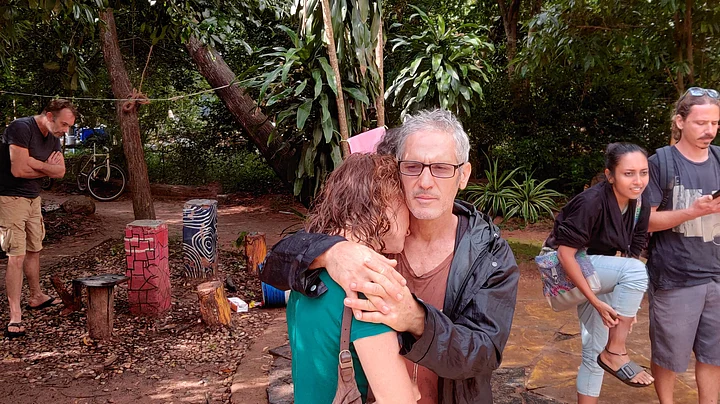The National Green Tribunal (NGT) on Friday, 29 April ordered a stay against the felling of trees at Auroville, a spiritual township in Tamil Nadu's Villupuram.
The application was filed by Navroz Kersasp Mody and Sandeep Vinod Sarah, residents of Auroville, against the ongoing allegedly illegal clearing of forest in Auroville. The forest is being cleared by the Auroville Foundation for the construction of a ring road named ‘Crown Road.’ Earlier, on 10 December the NGT had ordered an interim stay on the demolition process.
The NGT stated that until a joint committee, appointed by it, conducts an inspection of the plan site and submits a report, construction work will be halted.
What is the 'Crown Road' Project?
The Auroville Universal Township Master Plan – Perspective 2025 was approved by the Human Resource Development Ministry in 2001 and notified in a Government of India gazette in 2010.
The 'Crown Road,' part of the master plan, is a 16.7-meter-wide peripheral road proposed to be laid around Auroville.
A resident explained to The Quint that while the Auroville master plan was approved by The Mother – Mira Alfassa, founder of Auroville, the plan is no longer ecologically feasible.
Residents have alleged that the residents assembly and governing board have strongly objected to the development plans in the past but the authorities have not paid heed to them.
The Auroville Foundation is an autonomous body under the central government. The residents assembly is made up of the adult residents of Auroville and is authorised as per the Auroville Foundation Act-1988.
What Does the NGT Order Dictate?
The Tribunal has directed the Auroville Foundation to prepare a proper township plan adhering to the master plan, envisioned by the Mother. They will have to identify the locations where each zone will have to be located and where the roads will have to be laid. The nature of industries expected to be established in the township will also have to be identified. NGT also mentioned that environmental clearances need to be sought well in advance.
The order instructed that a joint committee, comprising the district collector, a forest officer not below the rank of conservator of forest, and state government officials, will inspect the area in question.
The committee will also ascertain the environmental impact of the felling of trees.
The Foundation has been directed to plant trees in the ratio of 1:10, for the number of trees to be cut. The species of plants are to be recommended by the joint committee, in order to protect environment and also to maintain the green cover in that area.
The joint committee is also directed to ascertain as to whether there are any water bodies or streams in the area. If a road passes through the water body, then it needs to be decided how the road can be constructed so that the water body is not affected.
The Committee is expected to submit the report within two months.
The order strictly states that no construction should take place until further notice from the court. However, Auroville Foundation can undertake the crown road work in the remaining stretches where there are no trees.
They have also been given the liberty to take action against unauthorised occupations.
“With this positive outcome in the court, we are looking forward to co-creating new solutions in Auroville,” said environmental sustainability expert and Aurovilian Lakshmi Venugopal in a statement.
“We anticipate that the current authorities will co-operate meaningfully with the community to implement these solutions. A large part of the community continues to operate in good faith, despite the recent and aggressive actions by authorities,” she added.
Why are Residents Protesting?
On the morning of 9 December 2021, several excavators arrived at the Youth Centre in Auroville to demolish buildings and cut down trees. A similar incident happened on 4 December 2021, when the police came with JCB earthmovers to clear the trees in the middle of the night. Over 100 locals too had manhandled the residents and forcibly cut down the trees.
Following protests, the police called the demolition off and urged the secretary to hold discussions with the Auroville residents.
A resident told The Quint that this move by the authorities was a way of “belittling the collective decision-making process” of the community.
They residents moved the Tribunal seeking a direction to the Foundation to prepare a detailed development plan, including a mobility plan that was based on and respects the present day ground realities. They insisted that the necessary impact assessment and feasibility studies should be done in an environmentally sustainable manner.
(At The Quint, we question everything. Play an active role in shaping our journalism by becoming a member today.)
